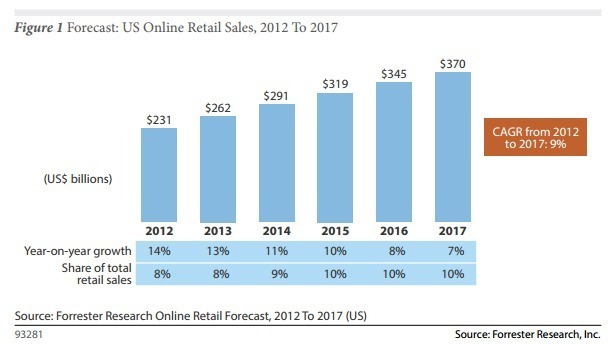Response time is critical for E-Commerce
Online E-commerce business is growing very quickly. From 2007 to 2015, the US Online retail sales have grown by 38%. And the market is still growing rapidly year over year.

In this context, being able to follow the business growth is critical. The goal of any online retailer is to increase the number of visitors, and thus increase the number of orders. But, bringing more people on an online shop can quickly become a pain if the shop is not prepared for it.
Imagine you have an e-commerce. The local TV makes an interview of you, a successful entrepreneur. Many people will see you, and want to visit your shop to see what you are selling. This is where the nightmare begins. The opportunity to make more sales is compromised by the absolute slowness of the website. The servers are overloaded.
